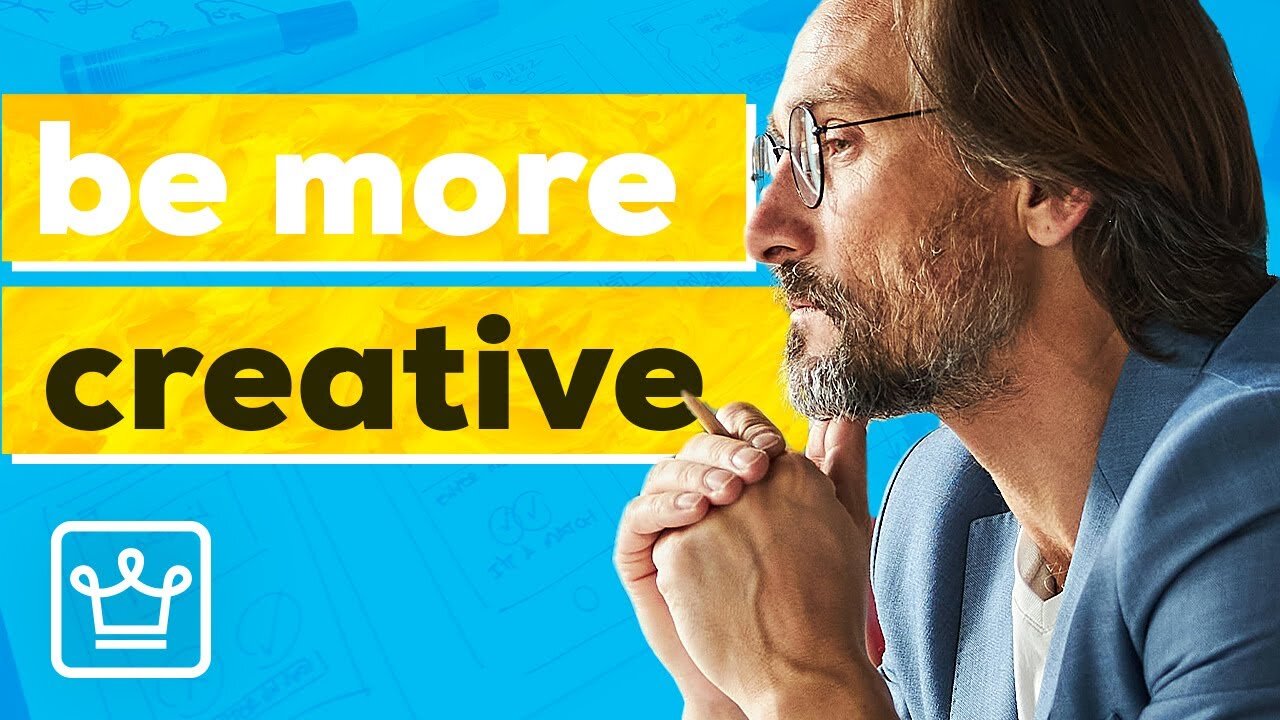Premium Only Content

15 Practical Ways To Be More Creative
#bookishears
@bookishears
15 Practical Ways To Be More Creative
Certainly! Here are 10 practical ways to boost your creativity:
Mind Mapping: Create visual representations of your ideas using mind maps. Start with a central concept and branch out with related thoughts and associations.
Brainstorming: Gather a group of people or do it individually to generate a wide range of ideas without judgment. Quantity matters more than quality at this stage.
Change Your Environment: Sometimes, a change in scenery can stimulate your brain. Work in different places, rearrange your workspace, or go for a walk in nature.
Divergent Thinking: Train your brain to think divergently by finding multiple uses for common objects. This exercise enhances your ability to see possibilities.
Limit Constraints: Paradoxically, sometimes imposing limitations can boost creativity. Set constraints and try to work within them to force your brain to think creatively.
Collaborate: Collaborative brainstorming with diverse individuals can lead to innovative ideas and fresh perspectives.
Mindfulness and Meditation: Practices that encourage mindfulness can help clear mental clutter, making space for creative thoughts.
Read Widely: Exposure to a variety of ideas, genres, and perspectives through reading can expand your mental horizons.
Break Routine: Routines can stifle creativity. Break free by trying new experiences, meeting new people, or even changing your daily schedule.
Learn a New Skill: Picking up a new skill or hobby unrelated to your work can introduce new perspectives and approaches to problem-solving.
Now, here are 5 more practical ways to enhance creativity:
Keep a Journal: Document your thoughts, ideas, and observations regularly. Reviewing your journal can help you connect seemingly unrelated concepts.
Take Breaks: Allow your brain time to rest and process information. Short breaks during intense work sessions can lead to breakthroughs.
Embrace Failure: Don't be afraid to fail. Failure often leads to learning and can spark creative solutions to problems.
Ask Questions: Challenge assumptions by asking "why" and "what if" questions. This can lead to new perspectives and ideas.
Mindful Observations: Pay attention to the details of your surroundings. Engaging your senses can trigger creative thinking.
Remember that creativity is a skill that can be developed over time. Incorporate these practices into your daily life, and you'll likely find your creative thinking improving.
-
 LIVE
LIVE
JuicyJohns
12 minutes ago🟢#1 REBIRTH PLAYER 10.2+ KD🟢
165 watching -
 LIVE
LIVE
GritsGG
12 minutes agoWin Streaking! Most Wins 3435+ 🧠
39 watching -
 LIVE
LIVE
Welcome to the Rebellion Podcast
19 hours agoMonday Funday - WTTR Podcast Live 8/25
456 watching -
 LIVE
LIVE
Game On!
15 hours ago $0.02 earnedTom Brady And The Las Vegas Raiders ARE BACK! 2025 NFL Preview!
4,767 watching -
 LIVE
LIVE
The Bubba Army
2 days agoShould RaJa Jackson Be Arrested? - Bubba the Love Sponge® Show | 8/25/25
2,525 watching -
 LIVE
LIVE
FyrBorne
14 hours ago🔴Warzone M&K Sniping: Builds So Strong They Think I'm Hacking
350 watching -
 LIVE
LIVE
BEK TV
2 days agoTrent Loos in the Morning - 8/25/2025
1,067 watching -
 4:23
4:23
Blackstone Griddles
16 hours agoEasy Salmon Dinner on the Blackstone Griddle
27.3K1 -
 8:10
8:10
WhaddoYouMeme
1 day ago $0.08 earnedChristians, Before You See “Testament”, Watch this!
13.5K4 -
 8:42
8:42
Freedom Frontline
15 hours agoDurbin’s Trump Smear Video Just HUMILIATED Him in the Senate
9.21K6